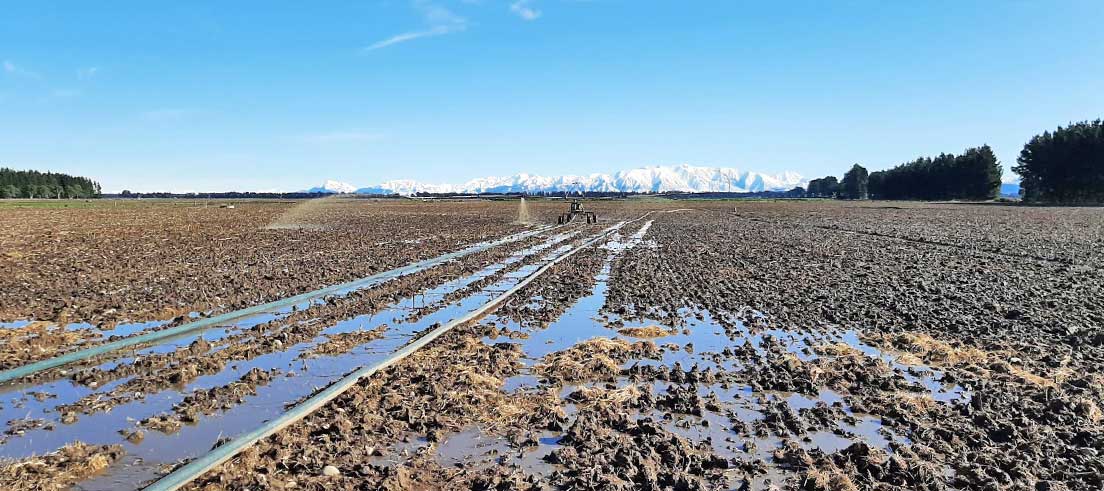
Local piggery fined $29,000 for a breach of its resource consent
PIC New Zealand Ltd (PIC) has been convicted of causing potential contamination to groundwater through its effluent discharges to land.
PIC pleaded guilty and has been convicted of one charge of discharging a contaminant (piggery effluent from a travelling irrigator) onto land which may have resulted in the contaminant entering water.
In August 2022, a compliance officer observed a travelling irrigator discharging effluent onto bare land which was saturated with rainwater. The discharge caused significant effluent ponding running the length of the paddock behind the travelling irrigator.
Allowing ponding to occur is a breach of the company’s resource consent - specifically the condition stating that discharges must be managed in such a way that effluent ponding does not occur.
Ponding can lead to water contamination
Ponding on land occurs when liquid effluent is applied at a greater rate than what the soil can absorb. When soil is saturated, leaching into groundwater aquifers can occur and create pathways leading to contamination of our water sources like springs, rivers, lakes and drinking water.
Pig effluent has higher quantities of nitrogen and ammonia compared to dairy effluent which makes it especially important to manage effluent application.
Zone Delivery Lead Gillian Jenkins says it's important that farms plan ahead for wet conditions to prevent ponding.
“Even though this particular incident happened during a really wet event, the Court ultimately decided that farms need to do better at managing their effluent in all conditions.
“All farms need to have up to date management plans that allow for climate change. Staff training and farming practices need to be adequate to respond to wet events like this as they will only increase in the future,” said Gillian.
A successful prosecution
PIC has been ordered to pay $29,000 as well as legal and court costs.
The Court’s decision considered PIC’s guilty plea, that it has begun trucking effluent off site, is using a revised management plan and has installed a Hi Lo monitoring system on its effluent tank since the incident. It also took into account PIC’s previous abatement notices.
“Ponding of effluent as bad as this and the potential leaching of contaminants to groundwater in the Selwyn area is unacceptable.
“We are really pleased to see the steps that PIC is taking towards improving compliance at the site and we’re working closely with them to ensure a problem like this doesn’t happen again,” Gill said.
